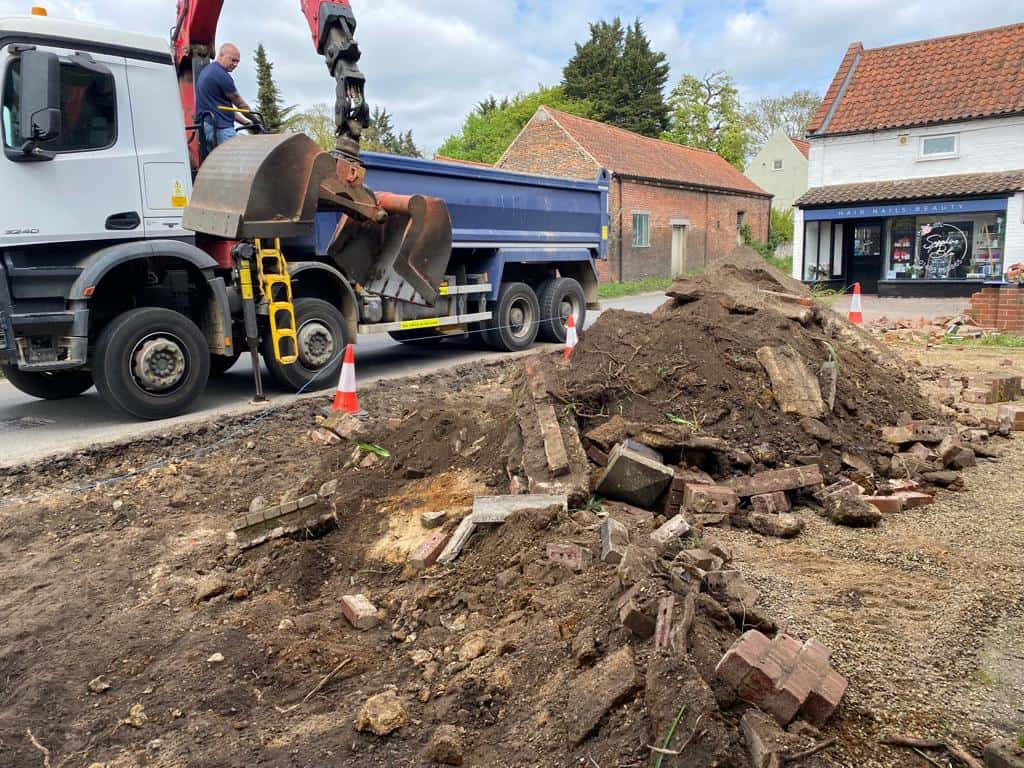The Key Differences Between Residential and Commercial Resin Surfaces
Resin surfaces have become a popular choice for driveways, patios, and pathways due to their durability, aesthetic appeal, and low maintenance. However, while both residential and commercial projects can benefit from resin-bound and resin-bonded surfaces, there are distinct differences in how these surfaces are designed, installed, and maintained depending on their intended use. For property owners and developers in Olney, Buckinghamshire, understanding these key differences can help in choosing the right resin surface for your project.
1. Purpose and Usage
The primary difference between residential and commercial resin surfaces lies in their purpose and expected usage. Residential surfaces are typically designed for lighter use, such as driveways, garden paths, and patios. They cater to family vehicles, occasional foot traffic, and outdoor living spaces. Commercial surfaces, on the other hand, must withstand heavier loads, including delivery vehicles, lorries, and higher volumes of foot traffic. As a result, commercial resin surfaces are designed with enhanced strength and durability in mind.
2. Thickness and Material Composition
In residential applications, resin surfaces are usually laid to a thickness of around 15-18mm, which is sufficient for typical household use. Commercial resin surfaces, however, are often laid to a greater thickness, sometimes up to 25mm or more, depending on the anticipated traffic and load. Additionally, commercial projects may require a stronger blend of resin and aggregates to enhance load-bearing capacity and long-term resilience.
3. Aggregate Selection
The choice of aggregate plays a significant role in both the appearance and functionality of resin surfaces. For residential projects, aesthetics often take precedence, with homeowners selecting aggregates that match their home’s exterior or personal style. Decorative aggregates in various colours and textures are commonly used to create attractive, eye-catching surfaces.
In contrast, commercial projects prioritise functionality and safety. Aggregates for commercial resin surfaces are often chosen for their anti-slip properties and durability rather than purely for their appearance. Additionally, larger or more angular aggregates may be used in commercial settings to enhance grip and ensure the surface remains safe for high-traffic areas.
4. Installation Process and Considerations
While the basic principles of resin surface installation are similar for both residential and commercial projects, there are key differences in preparation and execution. Residential installations typically involve smaller areas and simpler layouts, allowing for quicker completion times. The installation process for residential surfaces can be more straightforward, with a focus on achieving a smooth, seamless finish that enhances kerb appeal.
Commercial installations, however, often involve larger areas and more complex site conditions. These projects require careful planning, including considerations for drainage, access, and compliance with health and safety regulations. The installation process for commercial resin surfaces may also involve additional reinforcement, such as stronger sub-bases or edge restraints, to accommodate heavier loads and extended use.
5. Maintenance Requirements
Resin surfaces are low maintenance, but the requirements differ between residential and commercial applications. For residential surfaces, maintenance typically involves occasional cleaning to remove debris and prevent moss or algae growth. In commercial settings, where surfaces are subject to heavier use and potential spills, more frequent cleaning and inspections may be necessary. Regular maintenance ensures that commercial resin surfaces remain safe, attractive, and compliant with industry standards.
6. Cost Differences
Due to the enhanced specifications, materials, and labour involved, commercial resin surfaces generally cost more than residential installations. However, the investment is justified by the need for a robust, long-lasting surface that can endure high traffic and demanding conditions. For residential clients, the focus is often on balancing cost with aesthetic appeal and functionality, making resin an attractive option for both value and visual impact.
Why Choose Olney Driveways & Patios for Your Resin Surface Installation?
At Olney Driveways & Patios, we understand that every project is unique, whether it’s a residential driveway or a large-scale commercial surface. Our team of experts has extensive experience in delivering high-quality resin installations that are tailored to meet the specific needs of our clients. We take pride in offering professional advice, expert craftsmanship, and reliable service to ensure your resin surface not only looks fantastic but also performs exceptionally well over time.
We use premium materials and the latest techniques to deliver results that exceed expectations, whether you’re enhancing your home’s outdoor space or developing a commercial property.
Conclusion
Understanding the differences between residential and commercial resin surfaces is crucial when planning a new project. From the thickness and material composition to installation processes and maintenance needs, these factors play a significant role in determining the right solution for your property. Whether you’re a homeowner in Olney looking to upgrade your driveway or a developer managing a large commercial project, choosing the right resin surface is key to achieving the desired outcome.
For more information or to discuss your resin surface requirements, contact Olney Driveways & Patios today. Let us help you create a stunning, durable resin surface that perfectly suits your needs, whether it’s for a family home or a high-traffic commercial area.
Call us on: 01234 676 689
Click here to find out more about Olney Driveways & Patios
Click here to complete our contact form and see how we can help with your Driveway needs.

